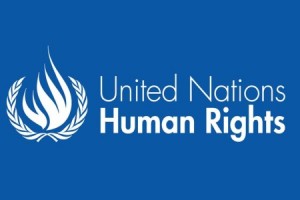 Jessica Wentz
Jessica Wentz
Associate Director and Postdoctoral Fellow
On June 30, the United Nations Human Rights Council (UNHRC) adopted a new resolution re-affirming the relationship between climate change and human rights. This resolution builds on three previous UNHRC resolutions (18/22, 7/23, and 10/4) and a 2009 report published by the Office of the High Commissioner for Human Rights (OHCHR). It stresses the importance of addressing the adverse consequences of climate change to protect the human rights of all persons, particularly those who live in developing countries and are most vulnerable to climate change.
The United States expressed support for the resolution, acknowledging that “the effects of climate change have a range of direct and indirect implications for the effective enjoyment of human rights.” However, the U.S. also expressed reservations about the international scope of the resolution, maintaining that this issue should be addressed through a “true human rights lens” which “means ensuring that States respect their human rights obligations to persons in their territories when they react to climate change” (emphasis added).
The connection between human rights and climate change was also raised by several countries during the second cycle of the United States Universal Periodic Review (UPR), which took place in May. As noted in a previous blog post, the UPR provides a unique opportunity for the UNHRC and other UN member states to ask questions and make recommendations on a national government’s human rights performance. Civil society can also participate in the UPR by submitting stakeholder reports to the OHCHR, engaging directly with domestic authorities, and encouraging other UN member states to raise a particular issue in their comments and recommendations.
Next week, the U.S. State Department will be hosting a civil society consultation in Washington D.C. to discuss how it should respond to the recommendations received during the second UPR cycle. As part of our ongoing efforts to link climate change and human rights, Executive Director Michael Burger has submitted a written statement to the U.S. Department of State which: (i) encourages the U.S. to accept the recommendations calling for enhanced action to protect the human rights of persons impacted by climate change, and (ii) outlines measures that the federal government can take to implement those recommendations.
The statement highlights the obligation of a state to address human rights violations when the harm arises outside of the state’s territory but the action giving rise to the harm is within the state’s jurisdiction (as is the case with greenhouse gas emissions and their adverse impacts). It also provides specific recommendations on how the federal government can enhance its efforts to reduce greenhouse gas emissions, facilitate adaptation to climate change, and address harmful impacts that cannot be averted through adaptation. Specifically, it encourages the federal government to consider the following actions:
1. Evaluate what emissions reduction pathway would be necessary to limit global warming to 1.5° C, which could halve sea level rise by 2300 as compared with a 2° C scenario.
2. Reduce fossil fuel production from federal lands and waters, consistent with the International Energy Agency’s conclusion that the world may only consume one-third of proven fossil fuel reserves before 2050 if we are possibly going to reach the 2° C goal.
3. Dedicate additional resources to address the impacts of climate change on vulnerable populations, both inside and beyond the US.
4. Regulate other major sources of GHG emissions, such as industrial processes, agriculture and livestock, extractive industries, natural gas systems, landfills, wastewater facilities, and other sources within the transportation sector (e.g., commercial aircraft, pipelines, rail, and ships and boats).
These recommendations complement a previous statement submitted in advance of the UPR, and a briefing note that we circulated to other UN member states and civil society representatives to bring more attention to this topic.
The official documentation for the U.S. UPR is available at the OHCHR website. The OHCHR also maintains a web portal on UN activities relating to human rights and climate change.


